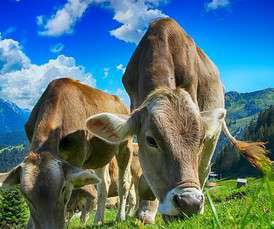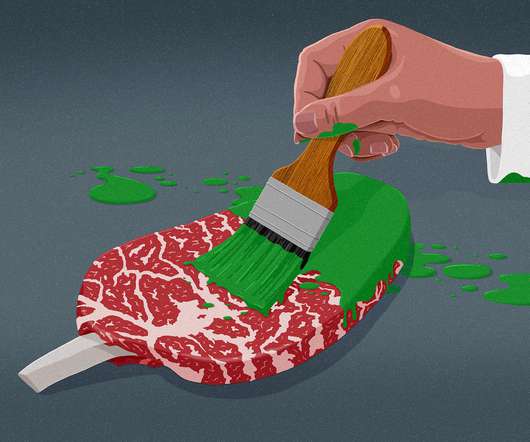Study: Methane-busting food innovation could fuel 118 million jobs
Business Green
MAY 8, 2023
Researchers calculate planetary, social, and economic impacts of ramping up investments in meat alternatives

Business Green
MAY 8, 2023
Researchers calculate planetary, social, and economic impacts of ramping up investments in meat alternatives

Business Green
MAY 5, 2022
Climate impact of beef worldwide is far higher than that of microbial-meat alternatives, according to a new study from the Potsdam Institute for Climate Impact Research.
This site is protected by reCAPTCHA and the Google Privacy Policy and Terms of Service apply.

Business Green
MAY 12, 2021
The report also highlights seafood as the next frontier for alternative proteins, amid growing concern over severely over-fished oceans and dwindling marine biodiversity. Cultivated fish fillets, sushi-grade salmon, and lobster are all reportedly in development at present, it states.

Green Business Bureau
JULY 22, 2021
Food waste is a huge emitter of methane, a planet-warming greenhouse gas, and takes up a large portion of municipal landfills. Plant-based meat replacements that look and taste like meat are also becoming more available. Use Eco-Friendly Tableware. Reduce Water Waste. Offer Meatless Food Options. Make Your Kitchen Sustainable.

Business Green
AUGUST 7, 2020
It outlines effective management plans for manure and for poultry litter, both of which can be significant sources of greenhouse gas emissions and pollution, such as methane and nitrous oxide. It discusses how to make the production of row crops that are often used for animal feed - such as corn, wheat, and soy - more sustainable.

DeSmogBlog
JULY 18, 2021
While the industry promotes meat as a solution to world hunger, it has simultaneously sought to undermine the concept that significantly reducing meat in diets, or replacing animal products with non-meat alternatives, is an effective emissions reduction strategy.

AGreenLiving
JANUARY 22, 2020
That made me think, ‘Wow, what if we could create a line of meat alternative products from one of the most sustainable sources of food on the planet?’ Related: Eating seaweed could reduce cows’ methane production Why is kelp a good idea for food sustainability?
Let's personalize your content